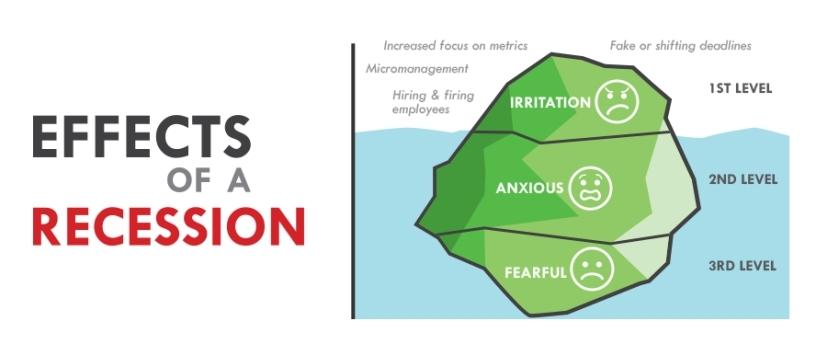What! What do I mean? During a recession, all the glitz and the marketing double-speak fades into the background. The only things that matter to most managers are the visibility of delivery and its impact on the bottom line. In the last few months, we have seen a doubling of Chillisoft's team augmentation and DevFluence's training offerings. A thriving pipeline for software development services in these economic times seems counter-intuitive, or does it?
What happens to software development teams during a recession? A recession is synonymous with fear, anxiety, financial insecurity and caution. There is typically a mood of anxiety and malaise that is difficult to pinpoint. This negative mood is draining, pervasive and it acts as a filter through which your team experiences their work day, says Anujah Bosman, CEO at Chillisoft.

Software development is knowledge work and knowledge work productivity is directly dependent on our ability to focus our attention. During uncertain times, there is a natural increase in control-based management actions.
In software development, control-based activities surface as fake or shifting deadlines, an increased number of meetings, micromanagement or no management, hiring and firing employees, under-investment in the project and an increased focus on metrics.
All of these measures are striving to create certainty and reduce risk and failure. It is therefore ironic that these control-based measures decrease software delivery. All of these factors increase the number of physical and mental distractions, increasing stress levels, making it extremely difficult for software developers to focus. Delivery becomes severely impacted because of disengagement, gossip and the existence of a self-perpetuating loop of fear, where fear feeds fear and anxiety, triggering blame. Ultimately, a toxic culture develops where the team disintegrates and software developers join more stable companies and teams.
Nobody can afford to lose key software developers, so what is the solution and what are the recommended management interventions during these stressful times? Chillisoft recommends that management implement initiatives to protect the team from negativity and stress, such as allowing them to work offsite together in an environment that allows them to focus. We also recommend team augmentation and training.
Team augmentation, done correctly, injects energy, cohesiveness and focus into your team, sustainably creating a positive mood. The team augmentation structure protects your team from distractions, shielding the team from sudden changes. This creates a consistent environment, enabling intense focus. Your team's attention shifts from primarily being focused on external factors to being focused on their work. Tight but doable deadlines, a developer's natural competitive streak and an enabling environment helps to maintain the focus. Onsite team augmentation allows for the sharing of ideas and learning, which are major motivating factors for software developers. This helps to offset negative mood contagion.
If you catch yourself saying: "They could not handle the pressure!" or you're regularly firing your scrum master or constantly mediating in team politics and conflict, then it's time to understand that your software delivery environment is unhealthy and that recession-based stress will just exacerbate this problem. Team augmentation is a safe option that provides new perspectives, energy and a wealth of experience to improve your team's motivation and delivery. Going live, with your team! This is Chillisoft's business and we love the challenge.
Please contact chris.ainslie@chillisoft.co.za or Peter.wiles@chillisoft.co.za to learn more about Chillisoft's team augmentation model and how the company can help you deliver.
Share
Editorial contacts